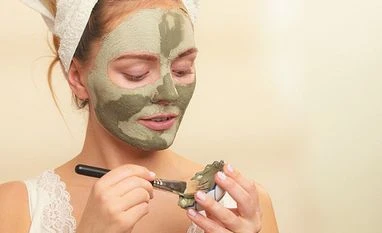In the days after the presidential election, Jessa Blades, a herbalist and make-up artist in Brooklyn who supported Hillary Clinton, was devastated. “All I could think to do was blend a tea to control my stress,” she said.
Blades, 37, mixed three pounds of lemon balm, nettle, chamomile, rose and oats together “for soothing the nervous system, calming, giving the right amount of boundaries and opening the heart” and put it in brown paper bags with “love for you and the world” written on the front. She gave them out to friends with instructions to use the combination for self-care.
The term self-care has, over the past few years, become part of the vernacular. But what does it mean? “I always say it’s a daily practice,” she said. “It can be as complicated or as simple as you want it to be: making sure you get enough sleep and drink enough water, monthly facials, fermented foods, a meditation app for your phone or packing healthy snacks for the plane.”
In recent weeks, though, self-care has often been invoked as a way of dealing with open-ended anxiety.
The term has been inescapable online. A search on Google Trends showed that self-care peaked in search interest popularity from November 13 through November 19, the largest increase in the last five years.
On November 11, the website Quartz posted an article titled, “The Rise of Donald Trump Demands We Embrace a Harder Kind of Self-Care”, and the same day, Mic published “A Self-Care Guide of TV to Watch to Forget About Donald Trump’s Rise.” (“None are the kind of challenging, difficult shows we normally recommend, but they’re also not the kind of shows that will melt your brain into mush.”)
Also Read
On November 18, the Clover newsletter, aimed at teenagers, published, “How to Pull Yourself Back Up When You’re Feeling Down” with “Self-care sounds like one of those lame new-agey terms that people toss around, but it’s actually important, especially now!”
And on social media, it was omnipresent. On Instagram, the tag #selfcare has well over a million posts, including images of sliced persimmons, clay face masks and many yoga poses. #SelfcareSunday joined #ThrowbackThursday, #MotivationMonday and #Caturday before it. In late November, Vanessa K De Luca, editor-in-chief of Essence magazine, posted to Twitter: “Power through today & only take in as much of the world drama as you can stand. #selfcare.” Many other users on Twitter mentioned desserts and alcohol. (Some in the offline world wrinkled their noses, thinking the term alluded to masturbation.)
The singling out of self-care as a concept is hardly recent. In 1976, the French philosopher Michel Foucault, in his treatise “The Care of the Self,” wrote that “the idea that one ought to attend to oneself, care for oneself” was a theme in the classical world and a practice that conditions one to care for others.
But the current usage is often traced back to the self-described “black, lesbian, mother, warrior, poet” Audre Lorde, who wrote in an essay published in her 1988 book, A Burst of Light, that “caring for myself is not self-indulgence, it is self-preservation, and that is an act of political warfare”.
© 2016 New York Times News Service
)